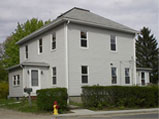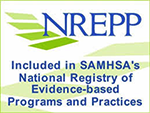|
Oxford House Residential Leases and the Landlord RelationshipThe Legal and Policy Reasons Underlying Oxford House Group LeasesOxford House, Inc., a 501(c)(3) non-profit organization, is the umbrella organization for the national network of individual Oxford Houses providing a cost-effective way to help recovering alcoholics and drug addicts help themselves. The first Oxford House was started in Montgomery County, Maryland in 1975. Within six months, the second house was opened and today there are more than 700 such houses. The success of Oxford House has led many to believe that it is the missing link in the treatment process for alcoholics and drug addicts. Its concept of democratically run, self-supporting group homes, its time-honed system of operations, and its low cost have been significantly more effective than traditional treatment approaches. Oxford House, however, is not a treatment facility. It is simply an alcohol and drug free living environment which provides an opportunity for recovering individuals to live as a family unit focused on the need to change their individual lifestyles - to live absolutely free of alcohol and drug use. Over 80% of those who live in an Oxford House stay clean and sober. In 1988, Congress passed a law requiring that every state in the country establish a revolving loan fund to help start houses based on the Oxford House model (P.L.100-690). Since that time, Oxford House, Inc. has organized a national headquarters to help individuals throughout the United States open Oxford Houses. The purpose of this document is to help new Oxford Houses, landlords, rental agents and local officials understand how and why Oxford Houses lease residential single-family houses in good neighborhoods. In 1975, Oxford House leases were pathfinders in the landlord-tenant arena. Today, they have become the norm for the thirty-nine states and two hundred-nineteen cities in which Oxford House operates. The leases are exactly the same as a lease to a single family but with certain important distinctions. Location of Oxford HousesOxford Houses are established in good neighborhoods to integrate the recovering individuals into mainstream communities, away from former environments, people and habits. Behavior change is key for successful recovery and living in a nice house and a nice neighborhood helps restore pride and self-esteem and provides additional incentive for the member to stay clean and sober. Who is ResponsibleThe particular group Oxford House is responsible to the landlord. An important part of why Oxford House has been so successful is that accountability and responsibility are given to the recovering individuals themselves. As a group they behave responsibly and out of that "group responsibility" the individuals develop a new responsible lifestyle free of alcohol and drug use. Oxford House, Inc. plays an important part in making certain that individual groups behave responsibly through the use of the "Charter" mechanism. Each individual group is given an Oxford House Charter which makes it part of the network of Oxford House recovery houses. That Charter carries with it certain privileges; for example, the individual House is (1) brought under the 501[c][3] status of Oxford House, Inc., (2) given support and education about the operation of a self-run, self-supported recovery house, (3) provided assistance in filling vacancies and enforcing sobriety and financial responsibility, and (4) monitored to assure quality control. It becomes important to every House that it keeps its Charter. The Charter has three simple -- but important -- conditions:
Oxford House, Inc. monitors the activities of each house in a number of ways. First, it has on-site support by dedicated members of Alcoholics Anonymous and Narcotics Anonymous. Dozens of individuals active in those programs have the Oxford House toll-free telephone number and call Oxford House headquarters if a particular house is not strictly carrying out its responsibilities under its charter. Getting sober and staying sober is serious business for these recovering individuals and their dedication to helping others achieve sobriety is unsurpassed. Second, Oxford House, Inc. keeps in touch with the members of each house on a regular basis. This involves weekly reports, periodic phone calls and the maintenance of continuous contact to keep track of vacancies and assure financial responsibility. It also enforces the Oxford House system of operations. Third, Oxford House, Inc. uses its best efforts to assure that any house, once leased, continues to operate as an Oxford House for the duration of the lease. This includes substituting the entire membership of a house should a house fail to adhere to the high standard required by the Oxford House charter. Oxford House, Inc. does not guarantee payment of rent. That would defeat the whole principle of establishing a system that teaches recovering individuals themselves to be responsible. However, it does the next best thing by utilizing and enforcing its Charter concept. Unlike the normal group house situation – for which there is no assurance of quality control – the Oxford House concept provides a landlord with the assurance of a dedicated partner in making certain that every Oxford House in the country is run in a responsible manner. Who Signs the LeaseBecause the property will be used in this way, the lease must be structured as a rental agreement between the landlord and the Oxford House as a group (e.g., "Oxford House Main Street"), rather than between the landlord and the House’s members as individuals. The first Oxford House structured its lease this way in 1975, and so has every Oxford House ever since because it is the only format that accurately reflects (1) that the House, but not necessarily the same members, will occupy the property for the duration of the lease, and (2) that the House is responsible as a group. First, only a lease to the House as a group can reflect the property’s intended and actual use for the duration of the lease. Individuals who open a new Oxford House, as you might imagine, intend to use the property as an Oxford House. To start an Oxford House, a group of recovering individuals with a Charter from Oxford House, Inc. will lease a single-family house in a good neighborhood to pursue long term recovery as a group by following the battle-tested and time-honored Oxford House model. According to the Oxford House model, as each founding member moves out, a new member who shares the group’s common pursuit is voted in. Members of an Oxford House are most likely to move out in a staggered precession as they recover at different rates, so the founding members will likely trickle out slowly, and some of the founding members will teach the non-founding members how to follow the Oxford House model. Even if every founding member happens to move out at once, though, the non-founding members who replace them will learn the Oxford House model from members of nearby Oxford Houses. Following the Oxford House model, the group of non-founding members will continue to pursue long term recovery together as a group, just like the group who started the house. Therefore, the landlord and the founding members give form to substance by structuring the lease as a rental agreement between the landlord and the Oxford House as a group. As the Oxford House model and the property lease runs their course in tandem, the individuals using the property will likely change many times, but the new individuals become a part the same group -- e.g., Oxford House Main Street -- and continue to use the property as an Oxford House. Accordingly, the property must be leased by the group, not by the individuals. If the lease were structured differently, it would quickly become impossible to reconcile with how the property is being used even though the landlord and the founding members intended that the property would be used this way when they created the lease. And the landlord rightfully expects this consistent use of the property throughout the term of the lease, even though the individual members of the House will likely change with some regularity during that same term. By entering into the rental agreement as a group, instead of as individuals, the House is bound to the rental agreement throughout the term of the lease, regardless of any changes to the House’s membership. Second, only a lease to the House as a group accurately reflects that the House is responsible as a group. The property is being used by the group as a treatment for alcoholism for the benefit of the group. As discussed in the previous section, Who is Responsible, an integral element of Oxford House’s efficacy as a treatment for alcoholism is the "group responsibility" that the Oxford House model requires. Oxford Houses meet the Charter requirement that the House must be self-run on a democratic basis by making important decisions as a group and by appointing members to execute those decisions. This element of group responsibility is integral to Oxford House’s treatment efficacy. For this reason, the property must be run, on a democratic basis, for the benefit of the House as a group rather than for any individual member. The property must therefore be leased to the House to accurately reflect that the House is leasing the property for the benefit of the House as a group and that the House will be responsible as a group. The House’s ability to appoint members as representatives of the group also provides a reliable point of contact who can speak for the House to interested third-parties (such as the landlord): individuals come and go but officers will always be accountable to the group and to the landlord on behalf of the group. Throughout the term of the lease, the landlord can maintain contact with an elected officer with the duty and authority to represent the House on all matters concerning the terms of the rental agreement and the group’s occupancy of the property. Because no House officers can serve for a term of more than six months in any one position, the specific individual serving as the officer with this authority will change at least every six months. Regardless of which member holds the office, though, the officer’s duty to the House and authority to represent it remain unchanged. Accordingly, the landlord can rest assured that House can and will maintain a reliable point of contact throughout the term of the lease. In conclusion, the intended use of the property is properly memorialized as a rental agreement between the landlord and the House as a group, and not between the landlord and the house’s members individually. If the property were instead leased to the House’s members individually, the House’s use of the property would become impossible to reconcile with the lease as the Oxford House model runs its course, and the House’s treatment efficacy would be reduced or destroyed. Because the property is leased to the House as a group, however, the use of the property can be reconciled with the lease throughout the term of the lease and the House can rightfully maintain the integrity of the Oxford House model as a treatment for alcoholism without straying from the terms of the lease. ZoningOxford Houses are considered single family residences for purposes of zoning. This has always been true in practice, and since March 12, 1989, the effective date of the 1988 Amendments to the Federal Fair Housing Act, it has been true as a matter of law. Those Amendments make it unlawful for any jurisdiction to discriminate against congregate living for the disabled. Recovering alcoholics and drug addicts are within the scope of the term "disabled." Therefore, Oxford Houses are not subject to zoning laws regulating the number of unrelated individuals who may live in a single-family dwelling unless the same restrictions apply to families. There is no need to seek prior approval for leasing to an Oxford House, and Oxford House, Inc. will legally defend any claim of zoning violation made by localities still unfamiliar with the federal law. Oxford House, Inc., will legally defend any claim of zoning violation made by localities still unfamiliar with the Federal Fair Housing Act.
Sample LeaseLandlords may download a sample lease. For more information
The Fair Housing Amendments Act of 1988 and Group Homes for the Handicapped |
||||||
| |||||||
.gif)








.gif)
